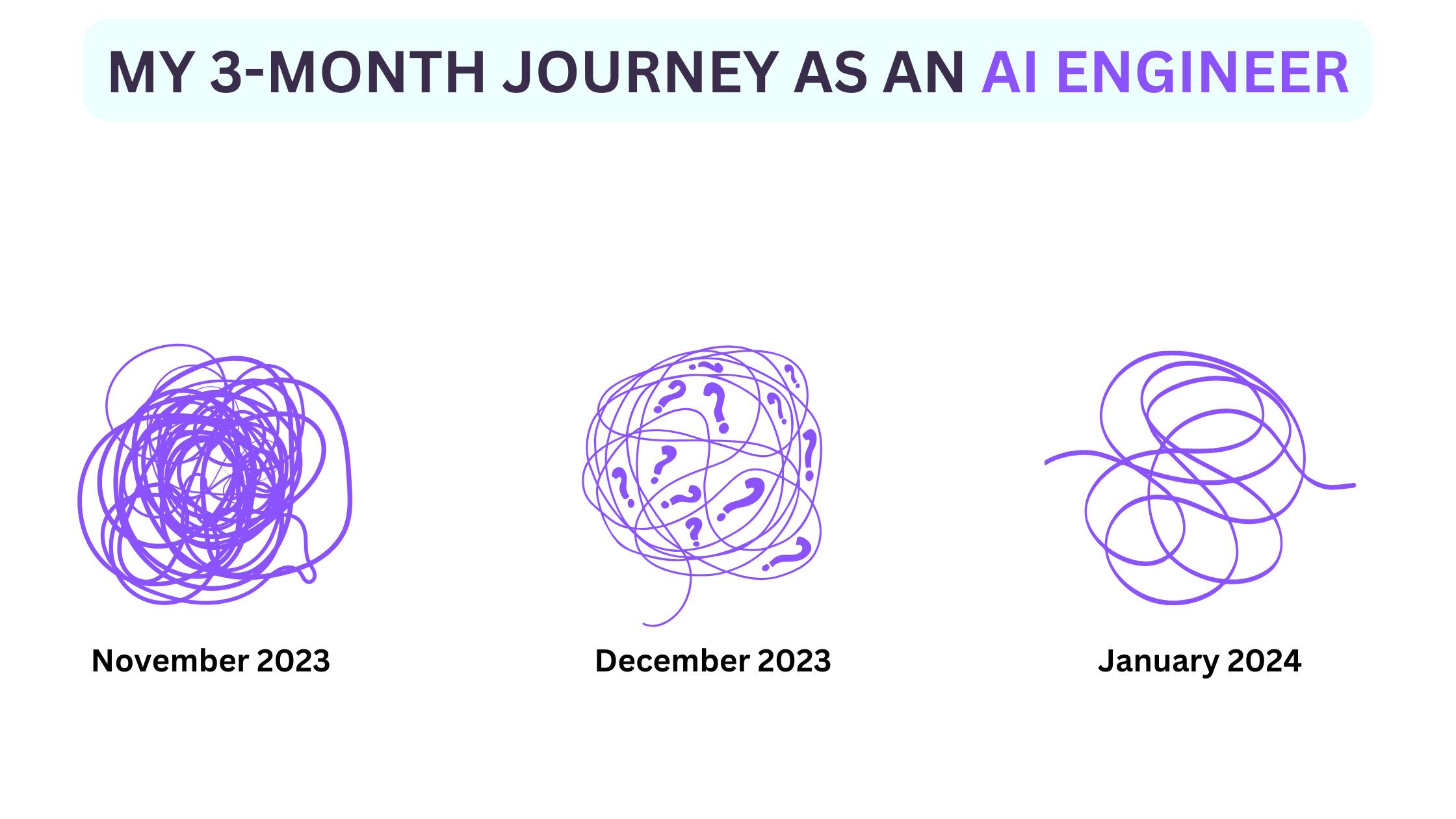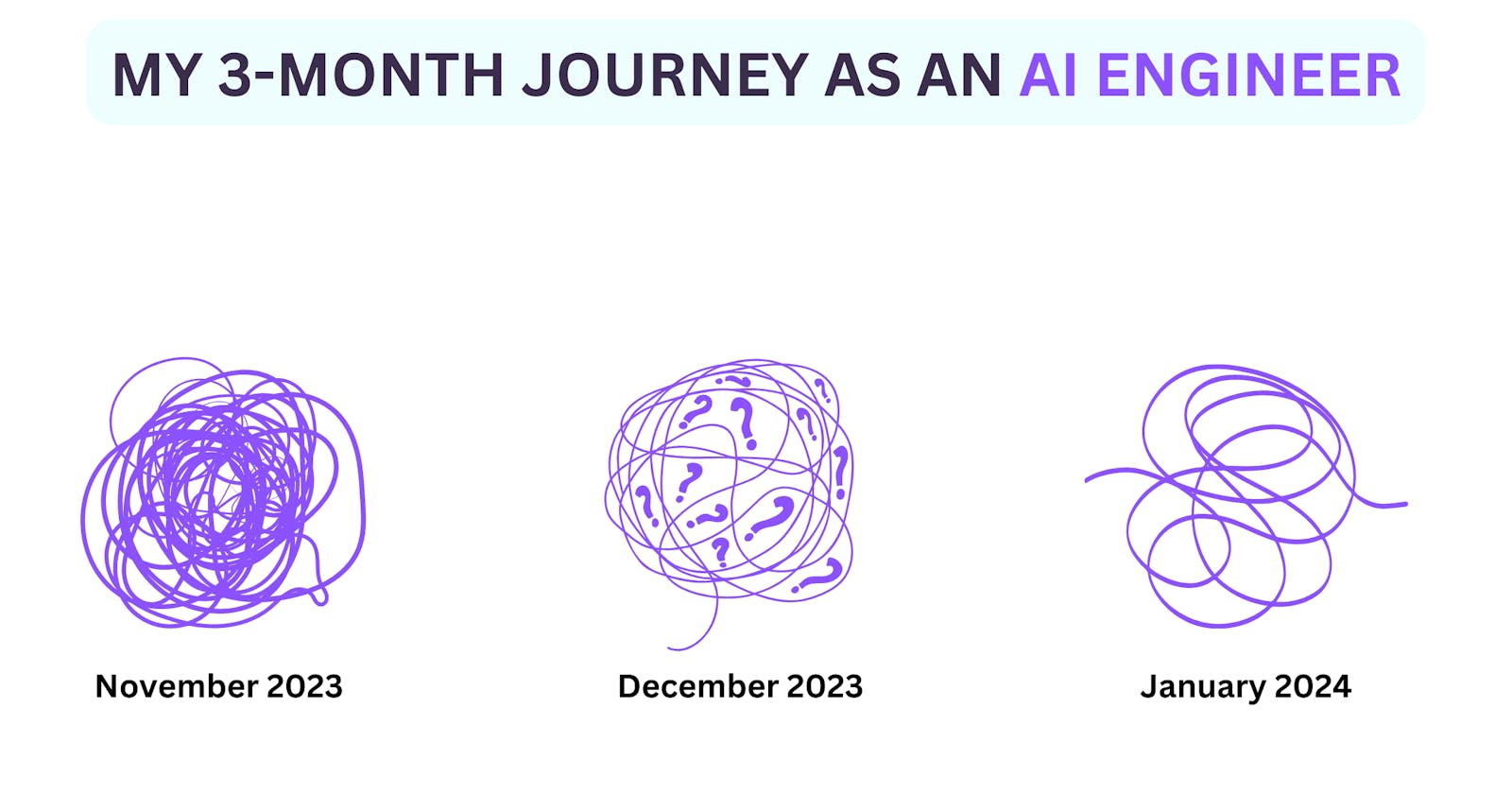The Context
As you can guess from the name of this newsletter, I am a big proponent of Adaptability for a fulfilling career. A few months ago, I got an opportunity to put my words into action when I was tasked to lead a GenAI team.
I had to, once again in my career, get out of my comfort zone, and 'adapt' to the demands of the industry.
I transitioned into an 'AI Engineer' in November last year and the 3-month journey has been a thrilling rollercoaster of challenges and small victories.

Though I transitioned in 3-months ago, the learning had begun in early 2023.
Today I can use data engineering techniques, build ML models, leverage GenAI, and use MLOps techniques to solve business problems and push the solutions to production.
Are the above skills good enough to call myself an AI Engineer? Let me know in the comments.
'AI Engineer' has ambiguous definitions in the industry. The Coursera definition best resonates with my understanding of an AI Engineer.
Artificial intelligence engineers are individuals who use AI and machine learning techniques to develop applications and systems that can help organizations increase efficiency, cut costs, increase profits, and make better business decisions.
How did I get started?
I had certain advantages.
I work in a polyglot organization that does rapid experimentation with emerging technologies.
I was tasked to build functional GenAI prototypes, and seeing them come to life piqued my interest in AI engineering.
This means I had the resources to learn and transition into an AI engineer and I only had to decide to become one at this stage in my career.
Also, I have more than 15 years of experience optimizing processes, building automation tools, and designing distributed systems.
Knowing how systems work, combined with the ability to code and design systems, and my domain knowledge was already a huge advantage.
I just had to add another skill set that is complimentary to my previous experience.
I must say, I was lucky and I am grateful to my organization for investing in me.
Now coming back to the topic; here's how I got started.
The first couple of weeks were hard. I just didn't know how to start.
The rapid advancements in LLMs were overwhelming and hard to keep up.
Some questions that I would constantly ponder over...
Do I spend most of my time mastering RAG techniques and LLMs?
Will I even use ML models in the business problems I intend to solve?
Should I get good at Math concepts even before starting the above?
After a month, as I wasn't making any progress, I decided to take a step back and focus on skills that I know will help solve my organization's AI use cases.
Instead of going through the entire AI learning path, I dove deep into areas I knew would help me solve the immediate business problems.

What about Math?
When you start researching the prerequisites of AI/ML, the first thing you read is Math.
Unless you are a Math enthusiast or have an advanced Math degree - Vector Calculus, Differential equations, and Mathematical statistics can scare any beginner into abandoning ML.
In my opinion, if your goal is to solve business problems only you will not use a lot of Math. Many tools take care of the Math for you.
If you are practicing AI/ML in an academic setup or are in the research space - then you most certainly will need maths.
Of course, knowing Math will help to know the concepts behind the Machine Learning algorithms, when to use them, and why to use them.
But you don't have to be PRO in math.
Data 'engineering' - The Ultimate Skill?
You would have heard/read this quote before "Data scientists spend between 80 to 90 percent of their time in data cleaning."
I cannot emphasize enough how critical this process is and why you should spend a lot of time mastering this particular skill set.
The illustration below perfectly captures the data science lifecycle. If you pay attention to steps 2 to 5, that's the phase where you will iterate several times (maybe for weeks and even months) before you reach step 6.
Resources I used to learn
-
Microsoft-stack heavy, but good to learn the fundamentals.
Andrew NG's Deeplearning.ai
I learned it in the below order...
1. ChatGPT Prompt Engineering for Developers
2. LangChain for LLM Application Development
3. Building Applications with Vector DatabasesCampus-X for Natural Language Processing (It's in Hinglish)
Thank you so much for investing your time in reading this article.
In the coming days, I will share tutorials on building AI agents and automation solutions. Do not forget to subscribe if you haven't already.

